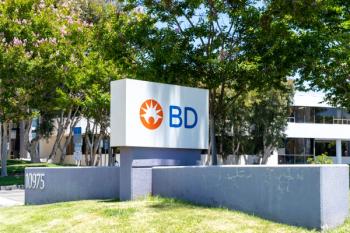
- LCGC Europe-10-01-2017
- Volume 30
- Issue 10
Petroleum, Refining, and Environmental Monitoring Technologies Conference (PEFTEC 2017)
The Petroleum, Refining, and Environmental Monitoring Technologies Conference (PEFTEC 2017) will be held in the Antwerp Expo, Antwerp, Belgium, from 29–30 November 2017.
The Petroleum, Refining, and Environmental Monitoring Technologies Conference (PEFTEC 2017) will be held in the Antwerp Expo, Antwerp, Belgium, from 29–30 November 2017.
The specialist event focuses on the testing, analysis, and monitoring of downstream oil products, chemicals, and petrochemicals, and aims to build on the success of its inaugural event in 2015, providing the industry with an opportunity to discover the latest information on testing and monitoring in the laboratory, in the field, and on-site, and provide the latest guidance on regulations, methods, and technologies for analytical chemists, scientists, process operators, laboratory personnel, and environmental managers.
The two-day conference will be divided into four half-day themed sessions featuring presentations from leading academic and industry experts:
Morning Session Day 1: Elemental Analysis and Speciation
This session will cover elemental analysis and speciation, including trace metal analysis and the speciation of mercury, phosphorus, arsenic, and oxygen compounds in a range of petrochemical samples.
Afternoon Session Day 1: The Latest Developments in Mass Spectrometry
The increased availability of affordable, reliable, and easy-to-operate high resolution mass spectrometers when combined with sample ionization techniques-which offer a degree of chemical selectivity-has led to a recent dramatic rise in the use of these techniques. In this session, leading researchers from academia and industry will cover all the main techniques and their applications.
Morning Session Day 2: Separation Science Techniques
The morning session on Day 2 will address separation science techniques, including gas chromatography (GC), high performance liquid chromatography (HPLC), and supercritical fluid chromatography (SFC) with a focus on multidimensional and hyphenated systems. GC continues to be the most commonly used chromatographic technique in the industry and the application of multidimensional GC techniques will be covered in the first two presentations, followed by a talk on the application of in silico modelling of GC separations. The remainder of the session will cover the application of SFC and HPLC and their combinations to achieve improved separations.
Afternoon Session Day 2: Spectroscopic Techniques and Online Analysis
The final afternoon session will cover spectroscopic techniques and online analysis, focusing on the rapid rise of vacuum ultraviolet spectroscopy (VUV) in the industry. In a relatively brief time VUV spectroscopy has been widely accepted by the industry and in combination with GC has recently been approved as an ASTM method for the analysis of finished gasoline. The application of thermo-gravimetric analysis coupled with infrared spectroscopy (TGA-IR) for fouling deposit analysis and the application of comprehensive twoâdimensional GC for online analysis will complete the session and the analytical technique conference.
PEFTEC Seminars and Exhibition Hall
Running throughout both days of the event, a series of over 60 seminars will operate from eight different seminar rooms within the exhibition hall. The seminars will cover an enormous variety of subjects, such as techniques, methods, standards, and cases studies in laboratory analysis, process monitoring, and environmental monitoring. Abstracts for all of the seminars are available from
The conference will also feature more than 150 exhibitors as well as a poster display area in which researchers from both academia and industry will publish the results of their latest work.
E-mail:
Website:
Articles in this issue
over 8 years ago
All’s Well That Ends Wellover 8 years ago
Vol 30 No 10 LCGC Europe October 2017 Regular Issue PDFNewsletter
Join the global community of analytical scientists who trust LCGC for insights on the latest techniques, trends, and expert solutions in chromatography.




